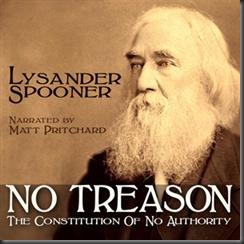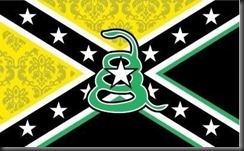 “What do ya got?” That’s what Johnny (Brando) asked when a girl asked, “what are you rebelling against”. That’s a good place to start today. After all if ‘what we got’ is good or good enough then why rebel against it? I mean anarcho-capitalism (AC) seems like such a radical departure from the status quo. Things would have to be pretty bad for most of us to consider such a change and the risks that seem to come with this one seem so large. There is another possibility. AC could be so good that what we have, even if we like some of it, might jusy pale in comparison to what we could have in a free land. But, lets stick to the first question. What do we have? Is it free? Is it even good?
“What do ya got?” That’s what Johnny (Brando) asked when a girl asked, “what are you rebelling against”. That’s a good place to start today. After all if ‘what we got’ is good or good enough then why rebel against it? I mean anarcho-capitalism (AC) seems like such a radical departure from the status quo. Things would have to be pretty bad for most of us to consider such a change and the risks that seem to come with this one seem so large. There is another possibility. AC could be so good that what we have, even if we like some of it, might jusy pale in comparison to what we could have in a free land. But, lets stick to the first question. What do we have? Is it free? Is it even good?
Lets paint the rosy picture of the ideal. We live in a land under The Constitution which is a constitutional republic, governed by law. Or take the other view. We live in a democracy where majority rules and The Constitution defends the rights of the minorities from the majority. Right from the beginning we see that it isn’t even clear what we have and we’ve had it for over 200 years, what ever it is. Both views agree it has something to do with The Constitution. So lets start there, shall we.
What is a constitution. The World English Dictionary defines it as: 3. the fundamental political principles on which a state is governed, esp when considered as embodying the rights of the subjects of that state. Okay, where did ours in the US come from? It didn’t just fall out of the sky on tablets of stone. The Constitutional Convention began as an effort to revise the Articles of Confederation which was our first document governing the 13 colonies and then sovereign states. Yet even at that level many of the revolutionary fathers declined to attend as they though the Articles of Confederation were sufficient. Among them of note, Samuel Adams, Thomas Paine, and Patrick Henry. However even this controversial goal gave way to something much more radical. Some of the delegates openly intended to make a whole new government at the convention. Strange. We had just won independence from England and had a constitution that was drafted by representatives of all 13 states and ratified by them all. This convention was not so unified and thus did not represent the will of all sovereign states. Rhode Island refused to even send delegates. In all, the new document of governing principals was crafted and voted on by 55 people (only 55 of 74 who were appointed participated) and only 39 of them approved enough to sign it. Three years later the first census in 1790 recorded the total population of the US to be 3,579,638 people including slaves. After all we should include slaves as whole people under the constitution, whether it did or not. Right? Document of freedom? Most states who ratified this document did so with a promise of the Bill of Rights which was added in 1791. This means that the document these folks offered and other folks ratified wasn’t even complete when it was offered. Remind you of any health care bill that wasn’t even read before it was voted on? Old habits die hard. Anyhow, The Constitution was written by 74% of the delegates sent to do so, signed by almost 53% of them (what a consensus) and 1071 people voted in state delegations for ratification which took over 3 years due to the disapproval of the expansion of federal power. That is in the end, 1071 people decided on the fate of 3.5 million of whom only 39 signed the document. This certainly isn’t a democracy. At best a “representative democracy” but we would have to look at how the delegates to the convention and ratification conventions were selected to decide that. Surely the slaves weren’t well represented, or the Indians.
 Now lets look at who these principals govern. I recently finished reviewing the audio book, “No Treason” subtitled “A Constitution of No Authority” by Lysander Spooner (click picture to listen free). It may be found and downloaded from The Ludwig von Mises Institute (http://mises.org/). You can read the entire text at: http://en.wikisource.org/wiki/No_Treason/6.
Now lets look at who these principals govern. I recently finished reviewing the audio book, “No Treason” subtitled “A Constitution of No Authority” by Lysander Spooner (click picture to listen free). It may be found and downloaded from The Ludwig von Mises Institute (http://mises.org/). You can read the entire text at: http://en.wikisource.org/wiki/No_Treason/6.
The basic idea here is that The Constitution is basically a contract between free peoples. If it is not then we are subject to it without our consent thus no freedom from it or the government it imposes on us. If it is a contract then who is this contract binding upon by basic principals of law and reason? Those who sign it. Okay, that’s 39 people who were bound by it. Their all dead so I doubt it binds them any longer. It could be considered binding on those who participated in the system of representation that produced it, i.e.. the generation surrounding it’s production and ratification, except the slaves and Indians of course, they weren’t given a free voice. But again they are all dead as well. Okay well, it says ”to ourselves and our posterity”, so there we have it, it includes us. Spooner answers this rather clearly and directly.
It does not say that their “posterity” will, shall, or must live under it. It only says, in effect, that their hopes and motives in adopting it were that it might prove useful to their posterity, as well as to themselves, by promoting their union, safety, tranquillity, liberty, etc.
Suppose an agreement were entered into, in this form:
We, the people of Boston, agree to maintain a fort on Governor’s Island, to protect ourselves and our posterity against invasion.
This agreement, as an agreement, would clearly bind nobody but the people then existing. Secondly, it would assert no right, power, or disposition, on their part, to compel their “posterity” to maintain such a fort. It would only indicate that the supposed welfare of their posterity was one of the motives that induced the original parties to enter into the agreement.
When a man says he is building a house for himself and his posterity, he does not mean to be understood as saying that he has any thought of binding them, nor is it to be inferred that he is so foolish as to imagine that he has any right or power to bind them, to live in it. So far as they are concerned, he only means to be understood as saying that his hopes and motives, in building it, are that they, or at least some of them, may find it for their happiness to live in it.
So when a man says he is planting a tree for himself and his posterity, he does not mean to be understood as saying that he has any thought of compelling them, nor is it to be inferred that he is such a simpleton as to imagine that he has any right or power to compel them, to eat the fruit. So far as they are concerned, he only means to say that his hopes and motives, in planting the tree, are that its fruit may be agreeable to them.
Spooner answers all arguments that “bind” us as individuals or groups to The Constitution. Even personal oaths to support and defend it are not binding, either morally or legally. He deals with them all in stride with basic principals of law and reason to the extent that any argument for binding anyone to it at all looks down right absurd and somewhat silly. In short as the title goes, The Constitution is of no authority over us whatsoever. But who would want it anyway?
From our very foundation under this constitution we have higher crime, more imprisonment of nonviolent offenders, more poverty, lower education levels, more war, more debt, less freedom, poorer healthcare,… the list goes on and on. Government in general, and ours under The Constitution is no different, has been the cause of all wars (no exceptions), overburdening of taxes, and loss of personal freedom of self and property since the beginning of human governments. Spooner concludes with these words:
Inasmuch as the Constitution was never signed, nor agreed to, by anybody, as a contract, and therefore never bound anybody, and is now binding upon nobody; and is, moreover, such an one as no people can ever hereafter be expected to consent to, except as they may be forced to do so at the point of the bayonet, it is perhaps of no importance what its true legal meaning, as a contract, is. Nevertheless, the writer thinks it proper to say that, in his opinion, the Constitution is no such instrument as it has generally been assumed to be; but that by false interpretations, and naked usurpations, the government has been made in practice a very widely, and almost wholly, different thing from what the Constitution itself purports to authorize. He has heretofore written much, and could write much more, to prove that such is the truth. But whether the Constitution really be one thing, or another, this much is certain—that it has either authorized such a government as we have had, or has been powerless to prevent it. In either case, it is unfit to exist.
One only need to look around today, even more so than the condition of 1870 when Spooner wrote those words, our country is in very sad shape and approaching failure or national servitude of the masses to remain solvent for just a few more years. Can “getting back” to The Constitution help us at all? As Spooner said, it either authorized what we have or was powerless to prevent it. Thus if we regress or ‘roll back’ some, many or all of the things that have happened since it’s ratification, what prevents us from getting here again? What about our posterity? No, I hardly consider ‘what we got’ as good or even good enough for me or my posterity. But what then? Isn’t this the best nation on earth? Depends on whether you are currently in favor with the government or not. The real question ignores the irrelevancy of whether there is a better plan currently in place on the planet. The better question is, is there a better way? YES! There is! Consider it. Read about it. Think hard about it. Don’t settle for what is in current use. Our forefathers didn’t. Consider what could be, what should be if we own ourselves and the product of our labor. Consider freedom in all that it means, without initiation of aggression against others or their property. What we have may be the best by some measures but it still sucks!
But, how will justice be done without a state? Murder in the streets! Who will feed the poor? Who will build the roads? Okay, okay slow down. First consider how well these things are being done now and you’ll climb off the statist high horse quick enough. Second, if you just think a bit you’ll see that we don’t need government forced labor and taxes to achieve these things. I heard a funny response to “who will build the roads” a while back.
Asking who will build the roads without forced taxation is like the southern textile mill owner asking how will we have clothing if the slaves don’t pick the cotton. Gee… we freed the slaves and we are all still wearing denim. I’m not sure we even saw much of a hiccup in the textile industry due to cotton shortages after emancipation. Don’t panic. The world won’t come to an end just because we have freedom. More later in another post.
